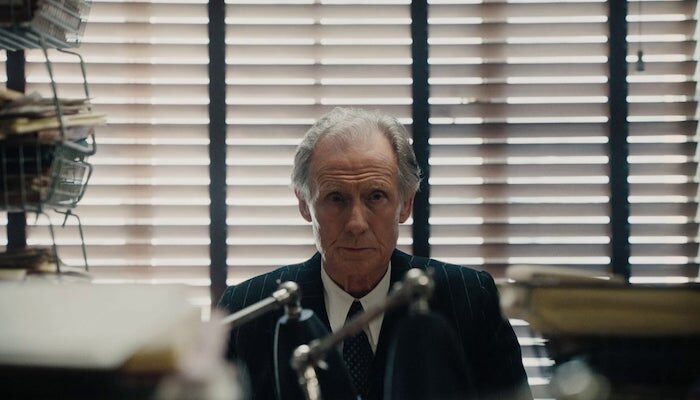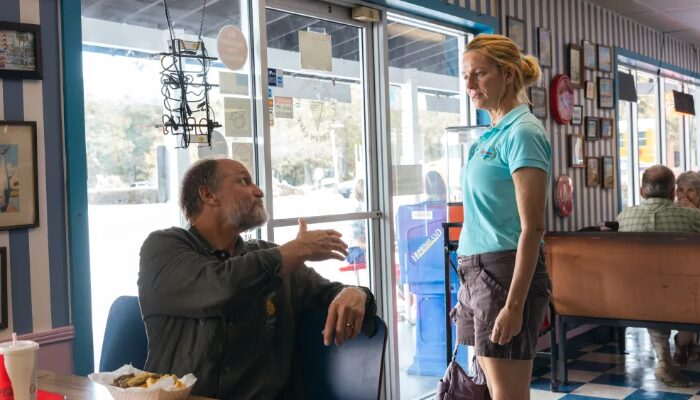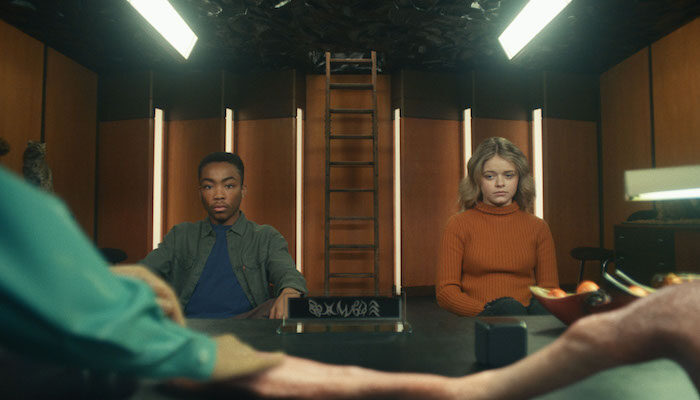Film Review: LIVING: British Version of a Classic and No Less Compelling [Sundance 2022]
Living Review
Living (2021) Film Review from the 45th Annual Sundance Film Festival, a movie directed by Oliver Hermanus, starring Bill Nighy, Aimee Lou Wood, Alex Sharp, and Tom Burke.
Standing on the shoulders of two giants, Living stands tall on its own merits.
Living was inspired by Kurosawa’s 1952 film, Ikiru (“To Live”). As an added tribute, the setting remained in the early Fifties, along with the plot from the original film virtually intact. Kurosawa claimed he and his co-writer, Hideo Oguni, were inspired by Tolstoy’s novella, “The Death of Ivan Ilyich.” But Kurosawa added a significant layer to the story by making the hero into a civil servant who had long before surrendered to the confounding convolutions of bureaucratic life.
Nobel laureate Kazuo Ishiguro decided to follow the tenor of Ikiru. This is not surprising, as both cultures share a particular common characteristic with regard to the world of business: inscrutable stoicism. In addition, Ishiguro has a proven track record of treating British customs with keen insight, as can be seen in the screen adaptation of his own novel, Remains of the Day.
Living is something of a breakthrough for director Oliver Hermanus, who has so far concentrated on themes specific to his native South Africa, especially with respect to social issues relating to race, gender, and sexual orientation. The filmmakers in this movie also explored the impropriety of an older man squiring a younger woman, however innocuous the encounter–a subtle indictment of the rigid social conventions that prevailed in the Fifties.
Veteran actor Bill Nighy portrays Mr. Williams, a supervisor in Public Works, and it’s a superb performance among several in this film. So oppressed by years of agency kibosh, Williams can barely speak above a whisper, he ostensibly shuffles files around and delegates tasks to his four underlings with equal indifference. Williams decides to assign one of these tasks to Peter Wakeling (Alex Sharp), an enthusiastic subordinate on his first day, evidently to demonstrate the futility of individual effort.
This exercise in bureaucratic runaround involves three women determined to convert a neighborhood lot used as a dump into a playground for the local children. A very simple matter of a few forms ends up as a day wasted for Mr. Wakeling, but eventually becomes the central spine of the story. Meanwhile a bracing breath of fresh air emerges in the form of Margaret Harris (Aimee Lou Wood), the secretary. As fresh and perky as Mr. Williams is tired and defeated, she clues Wakeling on office decorum. She announces her resignation at about the same time Mr. Williams learns he has a terminal illness.
Mr. Williams home life with his son, Michael (Barney Fishwick) and daughter-in-law, Fiona (Patsy Ferran) is as empty as his job; perhaps more so, because there isn’t even the lackluster distraction of official responsibility, fruitless as it is. Practicing in the mirror though he may, Williams has no energy to share the tragic news, and his family’s generally irritable manner squashes any incentive.
His aimless wandering takes him to a seaside restaurant, he meets an author, Sutherland (Tom Burke). Williams finally shares his fate, upon which Sutherland encourages him to live it up while he can. Even better, he offers to show the old gent a night on the town. Sutherland’s offer stems from genuine concern (though he has no problem getting free booze), but in the end Williams finds the experience anticlimactic. There is, however, an important event that night. Williams, uninhibited by the booze, found the gumption to stand in front of a crowd of strangers and sing a Scottish ballad he loved but forgotten about.
Williams, disappointed afterward, finds himself again in the doldrums–until he meets Margaret by chance on the street, where she asks for a reference in order to secure a promotion. He does so, summoning the courage to reach out and inviting her to lunch in a fancy restaurant, where the other patrons note what they suppose is a May-and-November tryst–a Fifties faux-pas.
The ensuing gossip sparks a wildfire of indignation throughout the neighborhood, even to the ears of Michael and Fiona, who dismiss Williams’ attempts to explain and demand, in the interest of his reputation, that he end “the affair.” But in the wake of his recent adventures–Sutherland’s kindly misfire and Margaret’s plainspoken wisdom, and more importantly, Williams’ own willingness to rouse from his indolence–he has an epiphany: to make a difference–or at least go down swinging. And in the end, he does both. Inspired further by the dogged determination of the playground ladies, he joins with them–and inspires his staff to do likewise.
In the interest of avoiding a “spoiler,” both in terms of the story and its emotional impact, the contents of Mr. Williams’ letter given posthumously to Mr. Wakeling should be savored while viewing this remarkable film, which stands proudly beside its predecessor. Bring a hankie.
Rating: 9/10
Leave your thoughts on this Living review and the film below in the comments section. Readers seeking to support this type of content can visit our Patreon Page and become one of FilmBook’s patrons. Readers seeking more Sundance Film Festival news can visit our Sundance Film Festival Page, our Film Festival Page, and our Film Festival Facebook Page. Readers seeking more film reviews can visit our Movie Review Page, our Movie Review Twitter Page, and our Movie Review Facebook Page. Want up-to-the-minute notifications? FilmBook staff members publish articles by Email, Twitter, Facebook, Instagram, Tumblr, Pinterest, Reddit, and Flipboard.
Related Articles
FilmBook's Newsletter
Subscribe to FilmBook’s Daily Newsletter for the latest news!













